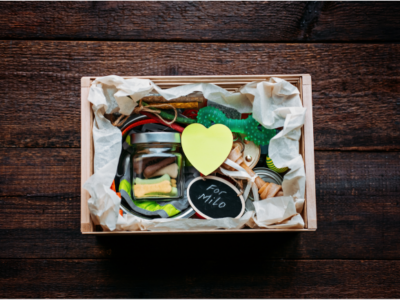No one knows what the future holds. But one thing is for sure – you can be prepared for anything by organizing your home in the right way. This blog post will teach you how to do just that, covering everything from decluttering your space to creating a disaster preparedness kit.
So whether you’re moving into a new place or simply want to be better prepared for life’s surprises, read on for tips that will help you get organized once and for all!
Preparation is often the key to surviving and thriving. From camping trips to how you organize your household, there is always something you can do to prepare for the unexpected. Whether it’s being ready to face a natural disaster, or being able to cope if the power goes down for a day or two, everyone feels better knowing they can cope with life’s curveballs.
So how can you organize your home to ensure you’re prepared for just about anything? Here are some tips.
Minimize Clutter
Start by decluttering your home and getting rid of anything you don’t need or use. This will help to make sure that your home is organized and easy to clean. Plus, it will also reduce potential hazards in case of an emergency.
Decluttering your home is also an opportunity to ensure there is a designated place for everything you own. This means that if you need to find certain things in an emergency, whether it’s waterproof clothing or spare candles, you’ll know exactly where to find everything.
Create an Emergency Kit
This kit should include items like flashlights, candles, batteries, matches and a first aid kit. Make sure you have enough supplies to last for several days. It’s also a good idea to include a list of important phone numbers and other contact information in your kit, such as the phone number for your local police station and fire department.
Make sure you include enough items that each member of your family can use, plus a little bit extra in case you have guests or come across people who need help.
Have Plenty of Dry and Canned Food
When it comes to being prepared for an emergency, having plenty of food on hand is essential. Stock up on dry and canned goods such as rice, beans, flour and oats, as well as other non-perishable items.
Jerky (https://jerkybrands.com) is also a great option, since it is shelf-stable and high in protein. Be sure to rotate out older food so it doesn’t go bad, and make sure you have enough to last at least three days.
Store Water
Having access to clean drinking water is essential during an emergency, so keeping a few large containers of water on hand is always a good idea. Make sure to rotate it out every few months, as the taste may start to deteriorate after a while. Also have a supply of water purification options, such as iodine tablets, in case you need to make water from a natural source potable.
Create a Command Center
This is a great way to keep all your important documents and contact information in one place. You can make a command center with folders or containers, where you can keep things like insurance policies, bank statements, medical records and emergency contact information. This way, if you are ever faced with an emergency, you know exactly where to find the information you need.
Make a Plan
It’s also important to create an emergency plan, so everyone in your household knows what to do and where to meet in the event of an emergency. Make sure everyone is familiar with the plan, and that it includes a designated meeting place and contact information in case family members are unable to reach each other.
If you live in an area that is at greater risk than most of a specific hazard or natural disaster, like hurricanes or flooding, make specific plans to deal with these types of events.
Stay Informed
Make sure you stay informed about the weather and other possible emergencies in your area. Sign up for alerts from your local emergency management agency, and pay attention to news reports of any potential hazards. This way, you can stay ahead of any potential dangers, and make sure you’re as prepared as possible.
Have Multiple Entry and Exit Points
If you live in an area that is prone to flooding, fires or other natural disasters, make sure you have multiple options for getting out of the house in an emergency. For example, ensure you have some windows that are large enough to climb out of, and ensure everyone knows where the window keys are for unlocking them.
Also have some devices on hand that can smash through windows or doors in an emergency, such as a crowbar or an axe.
Practice Regularly
Don’t just make a plan and forget about it – practice your emergency plans regularly, so everyone in your household knows what to do if an emergency occurs. This will help you be better prepared and make sure everyone is on the same page.
It will also highlight any changes you may have made to the layout or organization of your home in the meantime, without thinking about what you would do in an emergency.
By following these tips, you can ensure your home is organized and prepared for any unexpected emergency. Taking the time to be prepared now will save you a lot of stress and worry in the future.
By staying informed and having multiple exit points in case of an emergency, you can be more assured that your home is safe and secure. So take the time to make a plan today, and stay safe!










Comments